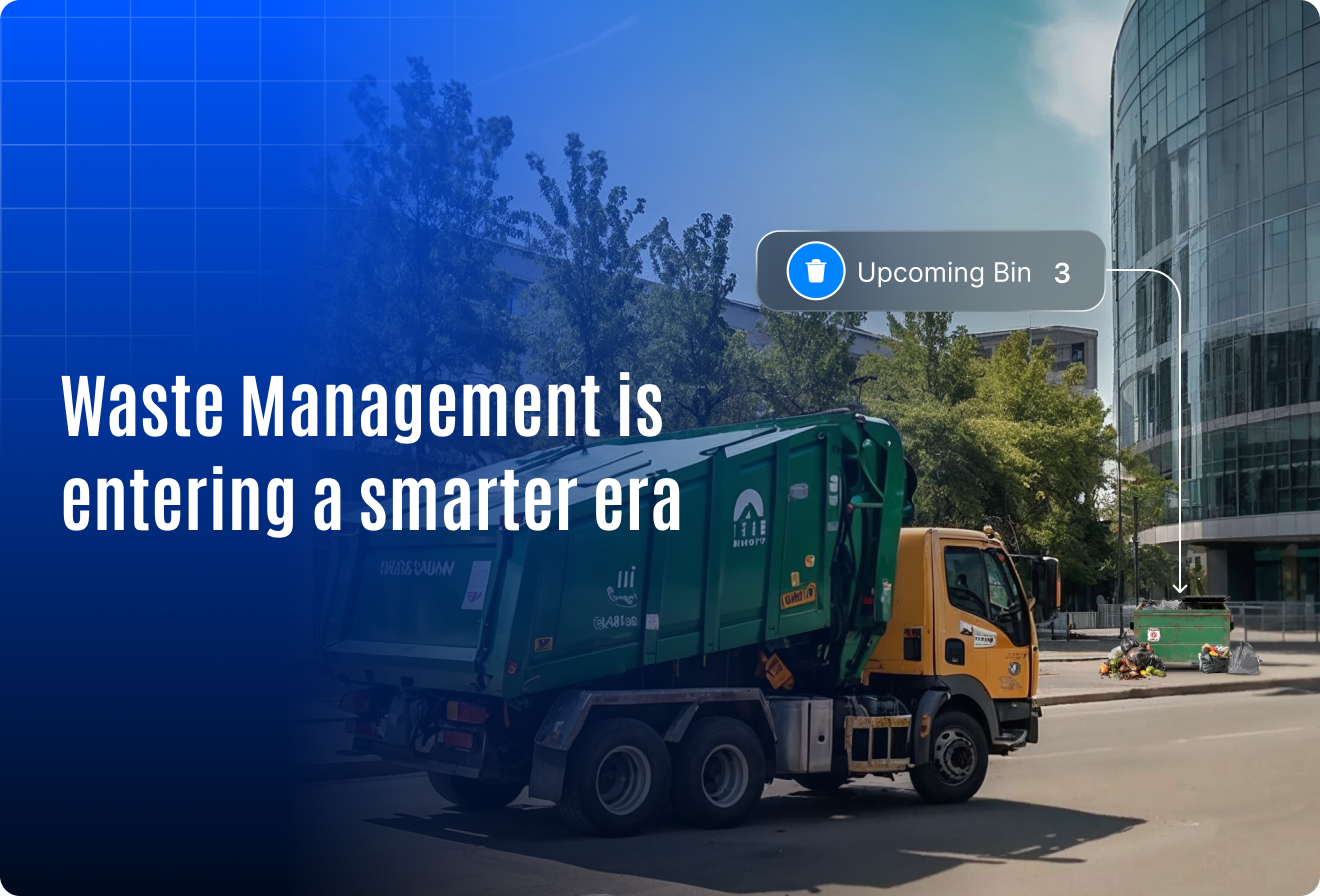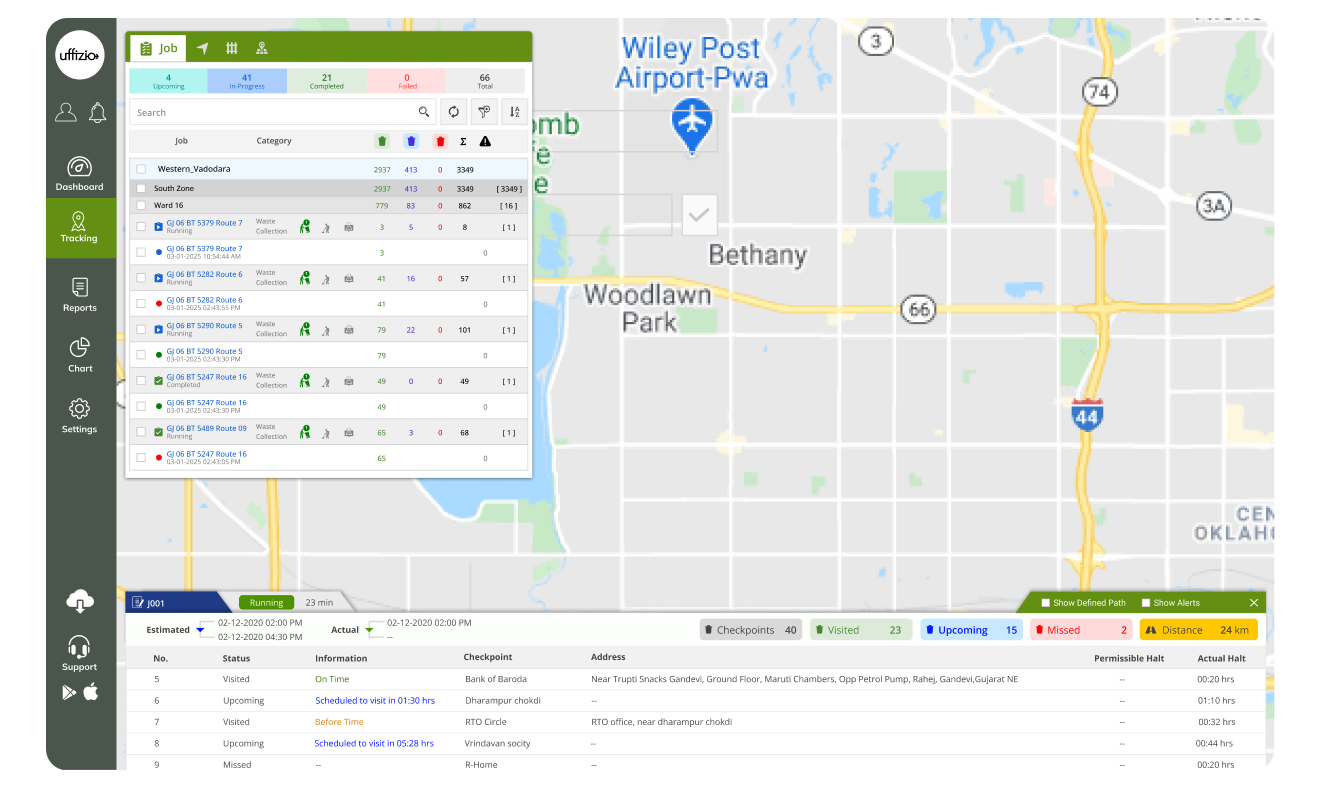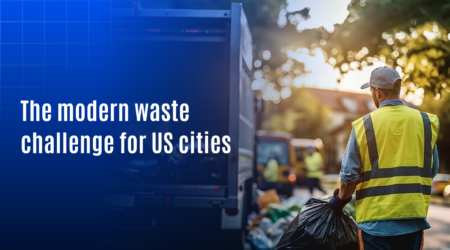Discover 2025 Waste Management Trends Shaping B2B Smart Solutions

In 2025, waste management is no longer just about collecting garbage. It’s about data, automation, and smarter decisions. Across cities and industries, B2B service providers are rethinking how they manage operations, reduce costs, and stay compliant.
This shift is being powered by smart waste solutions systems that use real-time data, IoT sensors, and intelligent software to simplify complex processes. According to a 2024 report by MarketsandMarkets, the global smart waste management market is expected to grow from USD 2.5 billion in 2023 to USD 6.5 billion by 2028, at a CAGR of over 20%.
If you’re in the waste collection business, facilities management, or a system integrator working with municipalities or private contractors, now is the time to pay attention.
In this blog, we’ll walk you through the key waste management trends shaping 2025 and how they unlock real business opportunities for B2B providers.
Why Waste Management Is a B2B Priority in 2025
Smart cities, stricter environmental regulations, and rising customer expectations are reshaping waste operations worldwide. Here’s why smart waste solutions have become a strategic need:
- Cities are generating more waste due to population growth.
- Governments are demanding transparency and sustainability.
- Businesses are under pressure to reduce operational costs and improve service levels.
The result? Waste management is now a growth opportunity, not just an overhead cost.
What B2B Companies Need in a Smart Waste Solution
1. Real-Time Visibility Across Operations
Imagine knowing where every vehicle, bin, and crew member is at any moment.
That’s what smart waste solutions enable with GPS tracking, bin sensors, and mobile apps. You can:
- Track live vehicle movements and route progress
- Monitor bin fill levels to avoid overflows
- See crew attendance and task completion in real time
B2B advantage: Faster decisions, reduced delays, and better client satisfaction.
2. Automation and AI in Route Optimization
Manual routing is outdated. In 2025, automated route planning powered by AI is standard.
Smart software analyzes factors like bin status, traffic, and vehicle capacity to suggest the best routes. This leads to:
- Fewer missed pickups
- Reduced fuel and labor costs
- Lower carbon emissionsWhy it matters for B2B: Efficiency becomes your competitive edge.
3. Smart Bin Technology and Predictive Collection
Overflowing bins are more than an eyesore and they damage your reputation.
With smart bins and predictive analytics, you get:
- Fill-level alerts before bins overflow
- Data patterns that help predict when pickups are needed
- Cleaner streets and better planning
B2B value: Improve your service quality while minimizing unnecessary trips.
4. Data-Driven Compliance and Reporting
Governments across the world from the UAE to the EU are tightening regulations.
Smart waste systems simplify reporting by:
- Generating automated logs for pickups, routes, and crew shifts
- Creating compliance-ready reports
- Offering transparency for audits and public records
What this means: You stay compliant and build trust with public and private clients.
5. Integrated Ecosystems with Hardware and Software
B2B clients no longer want scattered tools. They want one smart, seamless system.
That means:
- GPS devices, bin sensors, and mobile apps working together
- Central dashboards showing real-time performance
- One support team for everything
For system integrators: You become the go-to partner, not just a vendor.
6. Customization and White-Label Smart Waste Solutions
Every client is different and in 2025, they expect personalization.
Modern platforms allow:
- White-label branding for resellers
- Modular features to meet specific client needs
- Custom dashboards and reporting for various departments
B2B opportunity: Offer more, charge more, and retain clients longer.
Where the Real Opportunity Lies for B2B Providers
Whether you’re a contractor, a technology integrator, or a waste management company, these trends create real growth potential.
Here’s how you can benefit:
- Bundle hardware and software into a complete offering
- Earn recurring revenue with subscription models
- Provide value-added services like analytics, training, and support
- Respond to tenders that now require smart infrastructure
How to Get Started with a Smart Waste Solution in 2025
You don’t need to build everything from scratch. Instead:
- Choose a scalable and customizable platform
- Partner with trusted GPS and IoT hardware providers
- Prepare a demo kit with case studies and dashboards
- Focus on training, onboarding, and ongoing support
Summary: The Future of Waste Management Is Smart and Profitable
2025 is a defining year for waste management transformation. As governments push for cleaner cities and businesses strive for better efficiency, smart waste solutions are no longer optional; they’re essential. For B2B providers, this means more than just adopting new software. It’s about becoming a strategic partner who enables smarter, faster, and more sustainable waste operations.





